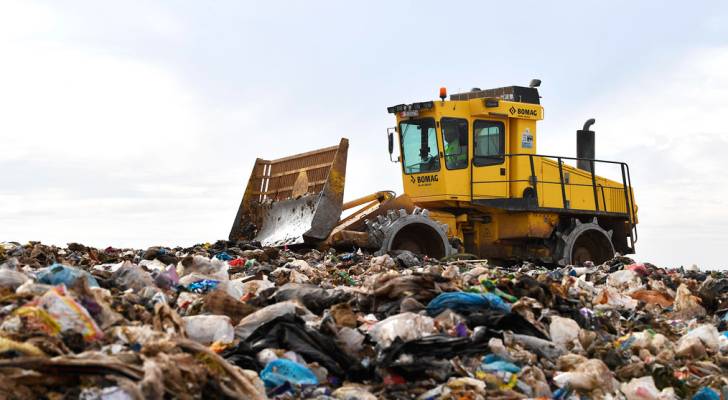Al Ghabawi Landfill, Amman, Jordan. (Photo: Getty Images)
Jordan links 10 landfills to national monitoring system in 2024
Jordan integrated 10 landfills and transfer stations into its National Information and Monitoring System in 2024, aiming to enhance waste management efficiency and environmental sustainability.
According to the 2024 annual report on the progress of the Economic Modernization Vision 2023-2025, Seven thousand tons of recyclable waste were collected from residential areas.
Al-Shaer Solid Waste Transfer Station reached a daily capacity of 3,500 tons. Recycling rates varied significantly, with the informal sector achieving 10-12 percent, while the formal sector remained below 1 percent.
To support farmers, 155 received solar-powered pumps, reducing financial burdens, while 11 climate-smart agriculture resources were developed. The government also assessed construction waste in Amman, Zarqa, and Irbid, signed agreements with environmental groups to boost recycling, and distributed 500 waste containers, 3,000 hanging baskets, and 50,000 biodegradable bags.
Air quality was monitored at the Akaider and Al Ghabawi landfills using mobile labs, and landfill emissions were measured with portable devices. Additionally, 351 photovoltaic systems were designed, with 155 installed to promote clean energy.
Urban development efforts included plans for water harvesting wells and reclaimed water storage, with tenders issued for projects in At-Tafilah, Shobak, Karak, and Ma’an. Jordan also launched its first national center for used EV battery data and an online platform for industrial waste exchange.
Despite these achievements, delays in tendering processes impacted project timelines. The government remains committed to sustainable development, focusing on a greener economy and better resource management to combat climate change.




